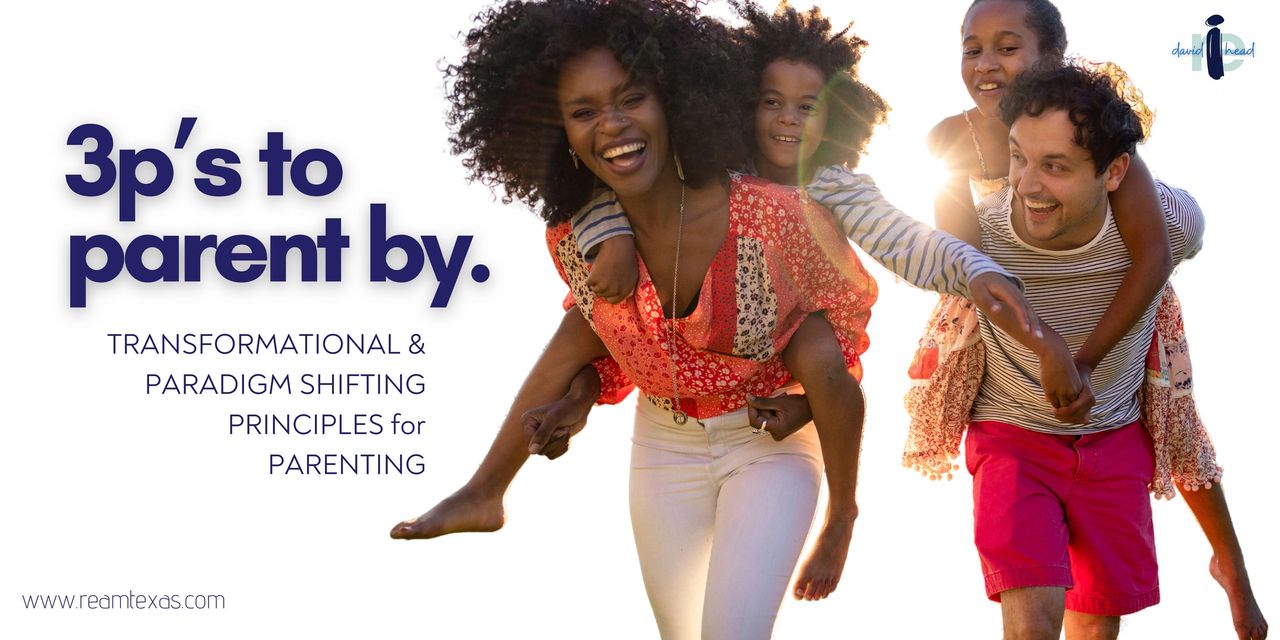Raising kids is undoubtedly one of the most challenging tasks that parents face. It requires patience, time, and a whole lot of effort. It’s no surprise that many parents find it overwhelming and stressful at times.
It can be tough to find the right balance between being too strict and too lenient. Parents also struggle with finding the right balance between work and family life. It’s essential to spend quality time with your kids, but it can be challenging to juggle your career and family responsibilities.
Parents feel overwhelmed by the constant demands of parenting, from helping with homework to attending extracurricular activities. Despite these challenges, raising kids can be incredibly rewarding. Watching your child grow and develop into a happy, healthy adult is one of the greatest joys in life. What is my approach?
I have found this particular concept has been extremely effective in my clinical work. While I respect the autonomy of parents and their choices, I caution against reacting to one’s own upbringing by adopting an opposite approach, as it may lead to similar consequences. I also advise against winging it, enforcing rigid arbitrary rules, or relying solely on ideas from social media platforms or magazines.
It may be necessary to address any preconceived notions before adopting this approach and utilizing it effectively. Remember, tools are useless without mindset. So, before I break this down.
I feel like I have to disclose that I am not a parent .
Not in the sense that we are framing it here.
So, what qualifies me to share parenting tips?
An annoying question in and of itself (as if it were necessary to experience some things first hand in order to speak to and understand it – so much for theoretical astrophysics). But hey, I get it. You want to know I can relate and that I am realistic and credible person to weigh in the topic. Kinda how only classroom teachers can tell classroom teachers how to teach …
I spent my early career working in inner city school elementaries and helping some low engagement parents with their behaviorally at-risk kiddos become successful, rising in the ranks from trenches to tower as the Director of Mental Health Services for the 4th largest non-profit organization in the US – Communities in Schools.
After five years, I descended the executive tower, and I went to go work in a government funded – privately ran – facility for children with unusual coping responses (behavior) who were in custody of the state. As staff therapist all my clients were victims of severe abuse and neglect.
Needless to say – I’ve seen the worst and have used this strategy, and it works without exception. This approach is evidence based and peer reviewed with a. solid theoretical background. It is a component of TRI, grounded in the Conscious Discipline framework and compliments Love and Logic, another great parenting resources.

GET TO THE STRATEGY ALREADY!!!
I hear you. here it is.
be present.
be parallel.
be playful.
Easy to remember. Let’s go deeper.
BE PRESENT
Being present with a child means setting aside distractions and focusing on the moment with them. It means creating a safe space where they feel comfortable sharing their thoughts. It means actively listening to them without judgment or interruption. It means acknowledging their feelings and validating their experiences. It means engaging in activities that they enjoy and showing genuine interest in their hobbies and interests. It involves setting boundaries and providing structure, while still allowing them to explore and learn independently.
BE PARALLEL
What it means to be parallel when parenting with a child is to be alongside them. Meeting them where they are and doing the things that they are doing as they are doing them.
Parallel parenting is a concept that emphasizes the importance of being not just present but also engaged with your child. It means that you are not just a spectator, but an active participant.
Being parallel with your child allows you to put yourself in their shoes and to understand them better. This means that you must be willing to get down on the ground and play with them, even if it means getting a little dirty.
doing time outs with them.
doing chores with them.
celebrating what they celebrate
if they are building mud cakes you are building mud cakes.
if they are jumping roping and climbing trees your climbing trees and jump roping
BE PLAYFUL
Parenting shouldn’t always be serious, and it’s not worth getting stressed over small things like power struggles. Incorporating playfulness, humor, and creativity into daily routines can create a positive and nurturing environment for children to grow and thrive in. Let go of the pressure to be perfect and embrace the joy of being a playful and loving parent.
One way to add playfulness to your parenting is by introducing silly games or challenges during everyday activities. For example, turning cleaning up toys into a race or making up a song while getting dressed in the morning. Making mundane tasks more fun can help children develop a positive attitude towards them.
Humor is also a great way to diffuse tense situations and build strong relationships with your children. Laughing together can create a sense of bonding and help children feel more comfortable opening up to you. It’s important to remember that being a parent doesn’t mean you have to be serious all the time.
Finally, creativity can be incorporated into many aspects of parenting, from coming up with imaginative ways to solve problems to encouraging your child’s artistic expression. By fostering a creative environment, you can help your children develop their own unique interests and skills.
If you would like to learn more about adopting a new paradigm for conscious parenting or to work with me individually . . . I encourage you to schedule an appointment click this link! Become a Client or email me David@reamtexas.com.
REFLECTION
- What aspects of the Three P parenting approach do you find most appealing and why?
- How do you think this approach would benefit your relationship with your child or children?
- What challenges do you foresee in implementing this approach in your parenting style?
- What modifications could you make to the approach to better fit your family’s needs?
- How do you think this approach could impact your child’s development and well-being?
- What strategies could you use to remain present during interactions with your child?
- How can you incorporate more playfulness into your parenting style?
- In what ways do you currently use parallel play with your child, and how could you enhance this style of play?
- How can you ensure that you are consistently using the Three P approach, even in difficult or stressful situations?
- What resources or support systems can you utilize to help you implement and maintain this parenting approach?

